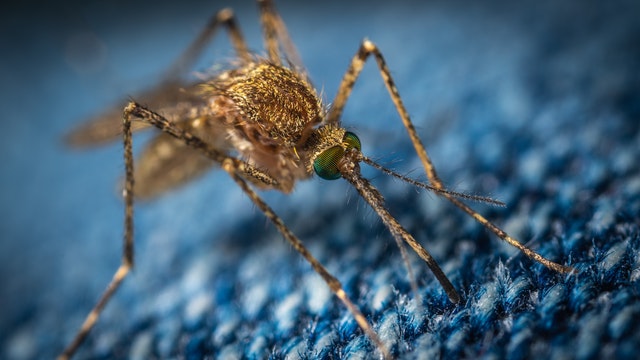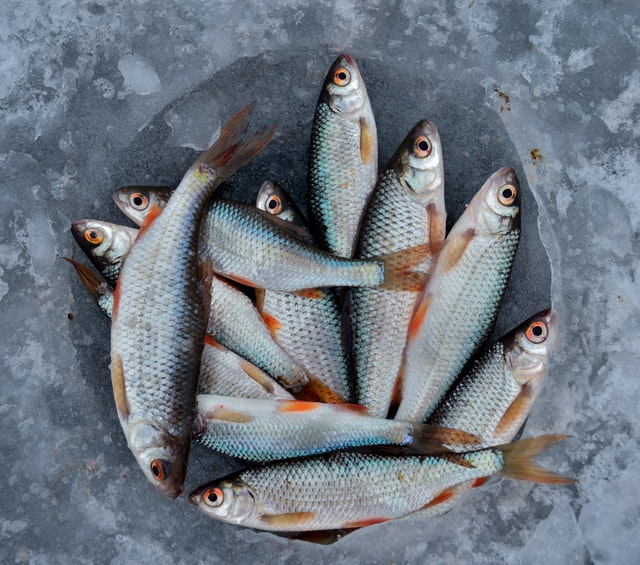Summer is fast approaching, but with COVID-19 still going around, the season may bring some new concerns. With the warmer weather comes mosquitos, and these little pests can spread diseases. So what about the coronavirus? Can mosquitos carry that?
Thankfully, no. Mosquitos may have played a key role in spreading pandemics in the past, but that’s not the case this time around. There’s still a lot we don’t know about the virus, but you can be sure you can’t get it from a mosquito bite.

So why is that? Why do mosquitos carry other diseases, but not this one?
How Does Coronavirus Spread?
COVID-19 is a respiratory virus, meaning it affects the lungs. The virus latches onto respiratory droplets that your body produces when you cough, sneeze or talk. If you’re close enough to someone with COVID-19, you could inhale these droplets, delivering the virus to your lungs.
Medical professionals think it can spread a couple of other ways, too. It’s possible that the coronavirus can live on surfaces, and if you touch these and then your mouth or nose, you could contract it. But where do mosquitos fit into all of this?
Mosquitos transmit diseases through the blood. If a mosquito bites a person with a bloodborne disease and then bites you, it can give you that illness. Since COVID-19 isn’t a bloodborne virus, mosquitos can’t contract it, so they can’t give it to you.
What Diseases Can Mosquitos Carry?
This isn’t to say that mosquitos are perfectly safe, though. The Centers for Disease Control and Prevention (CDC) reports more than 53,000 cases of insect-borne illnesses every year, and mosquitos account for a lot of that. You may not be able to contract COVID-19 from one, but they can still carry other diseases.
You may already know that mosquitos are the primary carriers of malaria and dengue fever. They’ve even contributed to other pandemics in the past. If you recall, mosquitos were to blame for the Zika outbreak in 2015 and 2016.
Before you go and wage war on these insects, though, you should know they’re not all bad. Yes, mosquitos can transmit various diseases, and they can also be irritating. At the same time, they may play an essential role in the ecosystem.
Mosquitos’ Ecological Impact
There’s a fair amount of debate about just how essential mosquitos are. Removing any species from an ecosystem could have drastic side effects, though. For example, mosquitos are a primary food source for many species of insects, reptiles, arachnids, amphibians and fish.
Many animals have evolved to catch and eat specific prey, so changing their diet isn’t always an option. For example, the aptly named mosquitofish could become endangered or even extinct without this food source. While some predators could switch to eating other insects, others may not be able to.
In some parts of the world, mosquitos are crucial pollinators. Mosquitos only bite to get the necessary protein to lay eggs, so most of the time, they rely on a diet of nectar. Without them, thousands of plant species would have trouble surviving.
The pesticides we use to kill mosquitos can damage other parts of the environment too. Dichloro-diphenyl-trichloroethane (DDT) is more deadly to bats than it is to their prey. If nothing else, scientists just don’t know enough about mosquitos to say what their removal could do to the environment.
Managing Mosquitos Ethically
Mosquitos can carry some deadly diseases, but you don’t have to worry about contracting the coronavirus from one. As irritating as they may be, trying to eradicate them could cause more harm than good. Avoiding mosquito bites is an excellent idea, as long as you do so ethically.
Using less toxic repellants or steering clear of ideal mosquito habitats are good places to start. As summer rolls around, try your best to avoid mosquitos, but don’t worry if one bites you. At the very least, it won’t give you the coronavirus.



